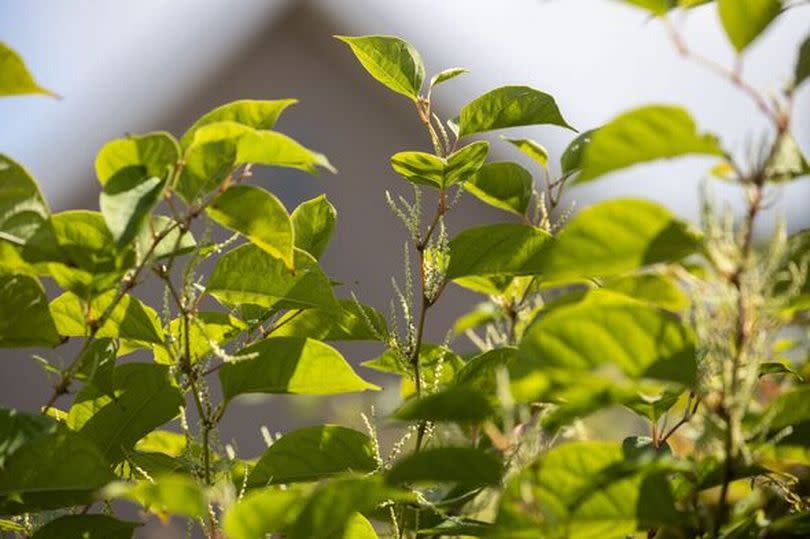Gardeners fined £2,500 for failing to kill three types of weeds

While weeds are often seen as a nuisance, sprouting up in gardens and overtaking flowerbeds and lawns, these 'wild flowers' can actually be beneficial to the environment by supporting endangered pollinators.
However, not all weeds are beneficial, and some need to be removed or killed immediately. Certain invasive and highly virulent weeds can not only spread rapidly in your garden but could also result in a £2,500 fine due to a change in legislation.
Under the Japanese knotweed laws, homeowners who fail to control Japanese Knotweed on their property can face prosecution and a fine of up to £2,500. This is due to Home Office rules and regulations introduced in 2014 relating to anti-social behaviour, which includes new laws concerning Knotweed and several other invasive species such as Himalayan Balsam and Giant Hogweed, reports the Express.
READ MORE Fake Jay Slater death posts slammed by family as search for teen continues
As stated by KnotweedHelp.com: "These new Japanese knotweed laws have been added to pre-existing laws relating to Anti-Social Behaviour Orders, and join older legislation such as the Environmental Protection Act 1990 and Wildlife and Countryside Act 1981."
"Under UK Law, Japanese knotweed is legally classed as a controlled plant under the Wildlife and Countryside Act 1981. It is not illegal for you to have Japanese knotweed on your property, but it is against UK law to cause or allow the plant to spread in the wild. It is legal to have Japanese Knotweed on your property but you can be prosecuted or given a community protection notice for causing a nuisance if you allow it to spread onto anyone else's property."
This is backed by the UK Government which says: "You must stop Japanese knotweed on your land from spreading off your property. Soil or plant material contaminated with non-native and invasive plants like Japanese knotweed can cause ecological damage and may be classified as controlled waste."
"You do not legally have to remove Japanese knotweed from your land unless it's causing a nuisance, but you can be prosecuted for causing it to spread into the wild".
How to identify Japanese Knotweed
Nonnativespecies.org says: "Herbaceous perennial, with stems typically about 2m tall and an extensive system of rhizomes. It has large, roughly triangular leaves with truncate (not cordate (heart-shaped)) bases."
"Possibly the most economically important invasive non-native species in GB, as eradication is required by law in property development sites and that can be expensive. It has only limited impact ecologically."
How to get rid of Japanese knotweed
The government advises: "Do not treat knotweed yourself unless you have the appropriate skills and experience. You can find companies that specialise in treating knotweed."
"Spraying or injecting the stems with chemicals can be an effective treatment to stop knotweeds spreading. You must only use approved herbicides."
"You'll have to respray. It usually takes at least 3 years to treat Japanese knotweed. Knotweed rhizome can remain dormant in the soil for many years and will regrow if disturbed or if the soil is relocated."

 Yahoo News
Yahoo News 
